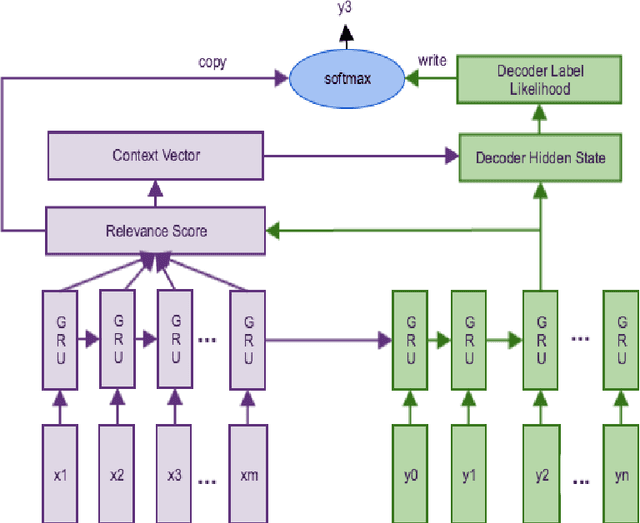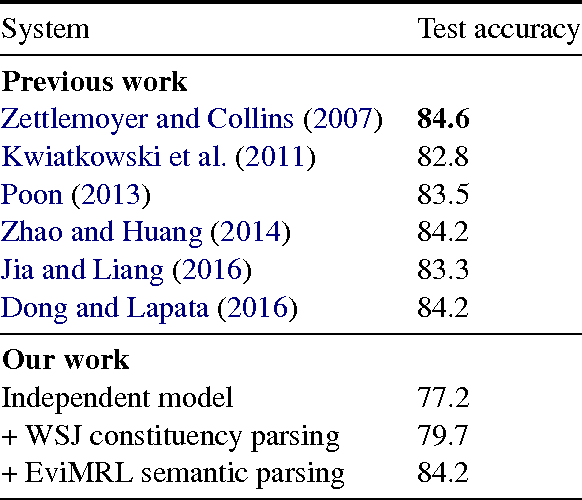Transfer Learning for Neural Semantic Parsing
Paper and Code
Jun 14, 2017



The goal of semantic parsing is to map natural language to a machine interpretable meaning representation language (MRL). One of the constraints that limits full exploration of deep learning technologies for semantic parsing is the lack of sufficient annotation training data. In this paper, we propose using sequence-to-sequence in a multi-task setup for semantic parsing with a focus on transfer learning. We explore three multi-task architectures for sequence-to-sequence modeling and compare their performance with an independently trained model. Our experiments show that the multi-task setup aids transfer learning from an auxiliary task with large labeled data to a target task with smaller labeled data. We see absolute accuracy gains ranging from 1.0% to 4.4% in our in- house data set, and we also see good gains ranging from 2.5% to 7.0% on the ATIS semantic parsing tasks with syntactic and semantic auxiliary tasks.
 Add to Chrome
Add to Chrome Add to Firefox
Add to Firefox Add to Edge
Add to Edge